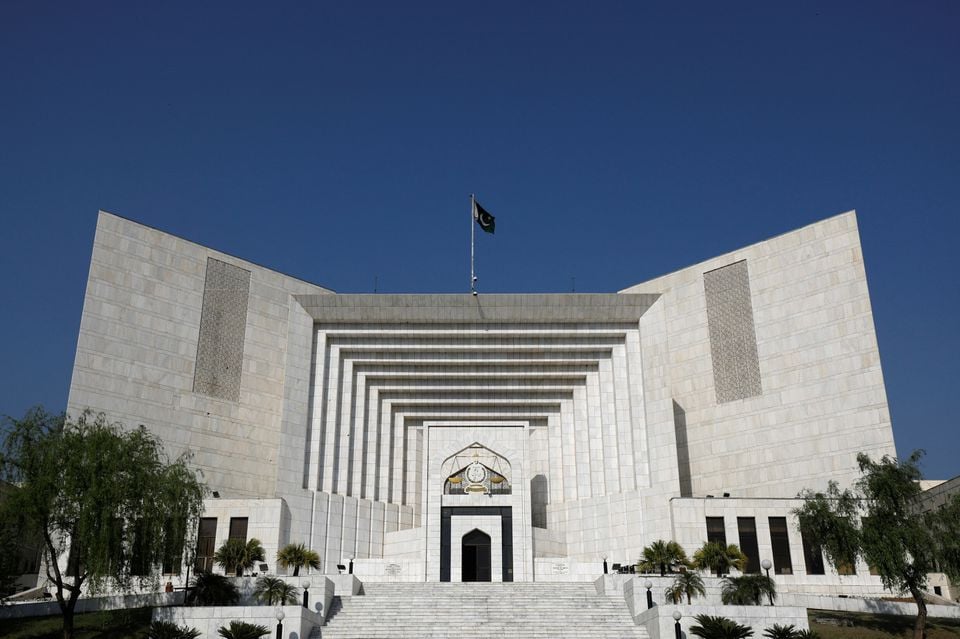ISLAMABAD: The federal cabinet has expressed dissatisfaction over the inquiry commission report on the infamous 2017 Faizabad sit-in after the Supreme Court earlier this month held that the findings of the probe were not consistent with the terms of references (ToRs).
Attorney General for Pakistan (AGP) Mansoor Usman Awan presented the report before the federal cabinet meeting presided over by Prime Minister Shehbaz Sharif in Islamabad on Tuesday.
The cabinet members termed the report dissatisfactory after the AGP briefed the cabinet on the find-ings.
The federal cabinet backed the top court’s observations that the inquiry commission did not address the ToRs and directed to form a special committee that will present its recommendations on the mat-ter.
In November last year, the federal government formed a three-member commission to identify those who planned, financed, and supported a sit-in at Islamabad’s Faizabad area against the then Pakistan Muslim League-Nawaz (PML-N)-led government in line with the apex court’s order.
The commission was led by Dr Akhtar Ali Shah, a former officer of the Khyber Pakhtunkhwa Police, and included senior PAS official Khushhal Khan and former inspector general Tahir Alam.
The probe body was tasked with identifying the perpetrators who facilitated the sit-in. However, it simply suggested taking legal action against the individuals in light of the federal government and Pun-jab’s findings.
During the last hearing of the case on May 6, Chief Justice of Pakistan Qazi Faez Isa blasted the Faiza-bad sit-in commission’s report, saying: “It appears as if the entire exercise was done to exonerate ex-spymaster Lt Gen (retd) Faiz Hamid”.
“It is astonishing that the statement of Tehreek-e-Labaik Pakistan (TLP) was not recorded,” the court had noted. The CJP had also said, “The TLP people might have helped if they were summoned. They were a party in this case and their point of view was important.” The CJP had said that the commission just submitted the report with idioms in it.
The court held that the commission had not followed its ToRs.
The court held that the report, furnished by the inquiry commission, was not in accordance with the ToRs, set for it and directed the AGP to submit the stance of the federal government, asking whether the government endorsed the inquiry commission report or not.
The court had also ordered to send copies of the report to the chairman and members of the inquiry commission, and to submit a written reply on the matter within two weeks, or to appear and explain.
Earlier, Islamabad High Court’s (IHC) Justice Mohsin Akhtar Kayani has said that the court has on-ly objection to spy agencies’ “unlawful work” and not the operations they perform lawfully. “No one has any objection to the work of the [spy] agencies, the objection is [only limited] to the unlawful work,” Justice Kayani said on Tuesday while hearing a case pertaining to the implementation of the recom-mendations of the commission on Baloch missing persons.
Justice Kayani stressed that the court does not want to prevent judges, lawyers, journalists, parlia-mentarians and spy agencies from operating as per the law, but only objects to them working unlaw-fully. –Agencies






